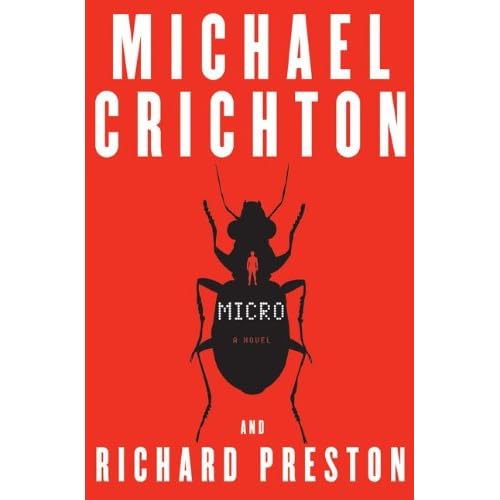I've read in book or audio book almost every book written about Bernard Madoff, the New York hedge fund financier who stole more than $50 billion in his ponzi scheme that was revealed in December 2008 when he confessed to his two sons, who were highly paid officers of his company.
![The Wizard of Lies: Bernie Madoff and the Death of Trust | [Diana B. Henriques] The Wizard of Lies: Bernie Madoff and the Death of Trust | [Diana B. Henriques]](http://ecx.images-amazon.com/images/I/61PIVbJJoCL._SL175_.jpg) I was looking forward to reading the book "The Wizard of Lies" by Diana B. Henriques, who was the lead writer for the New York Times in covering the Madoff scandal, especially since it was announced that it was the basis for the upcoming HBO movie about Madoff being played by actor Robert DeNiro.
I was looking forward to reading the book "The Wizard of Lies" by Diana B. Henriques, who was the lead writer for the New York Times in covering the Madoff scandal, especially since it was announced that it was the basis for the upcoming HBO movie about Madoff being played by actor Robert DeNiro.Although the book includes a lot of details gleaned no doubt from her years of covering the scandal, it also includes what looks like a pitch to forgive Madoff's wife and two sons and to exculpate or clear them of any wrongdoing.
It's almost as if Henriques was paid by someone in the Madoff family to make them look good, or maybe she got to close to the Madoff family. It's that bad!
She goes to nauseating lengths to question public beliefs that the wife, Ruth Madoff, and their two sons Mark and Andrew were guilty in the unprecedented ponzi scam. How could his wife and two sons, especially because they were involved in the company, not have been involved? Madoff's younger brother Peter was the Senior Managing Director and Chief Compliance Officer for Madoff's firm. Is it possible that these close family members worked without even a hint of the scam that wa staking place.
Although Madoff is now serving a 150 year federal prison sentence, the fact is that he broke the scam in a private conversation with his two sons and later his wife. That was almost two days before Madoff was arrested. The sons went to federal authorities to report what their father had told them.
Was that staged to protect them? They haven't spoken with him since the confession, and Mark later committed suicide exactly two years after the Ponzi scheme was revealed.
If someone was going to do a movie about Madoff, they might consider doing a fictionalized version since Madoff avoided a public trial where facts and truths would be put to the test, and immediately confessed his guilt. His wife, Ruth, was left with more than $2.5 million, certainly no where near the hundreds of millions they spent in their lavish lifestyle each year, but it is more than enough for her to lvie comfortably.
Henriques goes out of her way to defend Ruth and the sons, questioning without any facts their innocence.
The story HBO should do is one that speculates on the fictionalized reality of what may have happened. Did someone get to Henriques, the lead reporter at the New York Times. Billions of dollars were involved in the scam and many people had much to lose? She writes in defense of Ruth and the family as if she was their PR agent, not an investigative reporter. For example, she offers excruciating detail about Bernie Madoff but very little substantive detail about the actual roles of Ruth and her sons in the Madoff family business.
Why shouldn't the public believe in this speculative treacheries? The fact is that Harry Markopolos handed the Madoff case to the Securities and Exchange Commission at least twice, and hounded the SEC on the topic for years. Why didn't the SEC take the case seriously? Why didn't they do their job? It's almost as if someone at the SEC was protecting Madoff. (Markopolos was a strange character who contributed to the fact that few people believed his "evidence" of a ponzi scheme. He clearly was good at making enemies not believers, though he had a few.)
This book was doing great until the author started her dive in defense of the Madoff family.
It just is not possible that the wife and sons knew nothing. It's more likely that they knew something than not, given their roles int he company and their lifestyle. They had a motive to lie. They could have gone to jail, too.
The fact that the two sons never spoke to their father doesn't suggest as Henriques writes that they were so angry and anguished at their father, but rather than only in a conspiracy of silence (Code of Silence is what the police call it) that two sons would not speak to a father who gave them so much. What did they earn? They were handed their careers and their hundreds of millions that funded their own lavish lifestyle. They had a lot to lose to have spoken to their father. And wouldn't a father warn his sons not to speak to him again for fear they might lose everything? That's the kind of love one might expect from a family of vicious greedy financial jackals.
Henriques doesn't build much sympathy for Madoff but she clearly presents a case the wife and children need.
A court never got a chance to review the facts, so a book by a New York Times reporter would be just as good. Or would it?
Henriques comes across biased, which is not surprising considering she was one of the few if only reporters Madoff agreed to be interviewed by for her book.
What does that tell you? Madoff may have been a liar and a thief, but he is not stupid.
--- Ray Hanania


